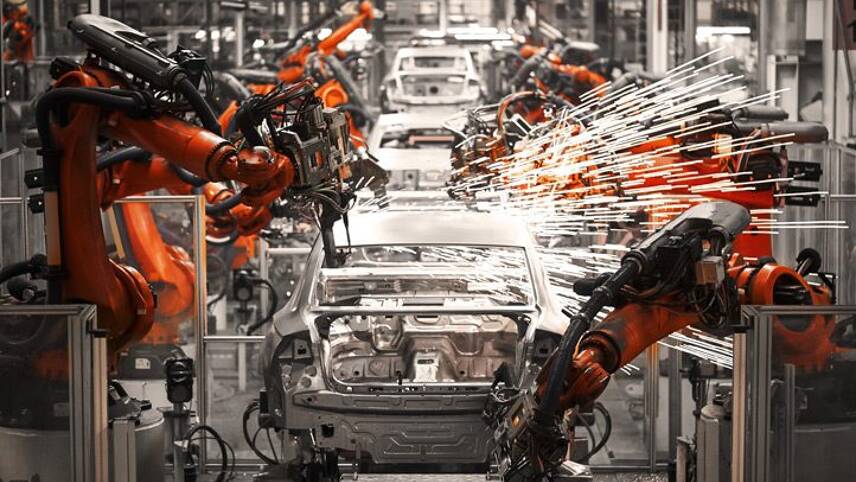Register for free and continue reading
Join our growing army of changemakers and get unlimited access to our premium content

Already, 12% of manufacturers have had to make job cuts as a direct result of increased energy bills
That is according to a new survey from Make UK, the manufacturer’s association, which polled its members on how they are dealing with the energy cost crisis.
Make UK found that 42% of manufacturers have seen their electricity bills increase by 100% in the last year, while 32% have seen gas prices increase by more than 100% in the same period.
Worryingly, more than half of businesses expect these costs to increase by a further 100% over the next 12 months. As such, 60% claim that the cost crisis is threatening the very existence of their business.
Already, 12% of manufacturers have had to make job cuts as a direct result of increased energy bills and if bills continue to rise at their expected rates, many manufacturers will have to turn to more redundancies and site shutdowns to survive.
Make UK’s chief executive Stephen Phipson said: “As energy bills spiral out of control, manufacturers are working tirelessly to find ways to reduce consumption, putting in place as much as they can afford in terms of building improvements and installing renewable sources of energy.
“Government must step in to help struggling businesses, cashflow is already stretched to the limit, to pay what are now exorbitant energy bills by supporting sustainable factories and move further away from National Grid reliance.”
Make UK notes that the high prices are a concern for manufacturers of all sizes and sectors and that 58% of respondents have sought to reduce energy consumption through insulation and better heating systems.
Manufacturers are also looking to secure their own energy supply, with 27% now exploring the funding options for onsite generation.
Policy intervention
Make UK is urging the government to act in both the short and long-term to protect manufacturing businesses.
The organisation recommends that, in the short-term, the Government should remove Carbon Price Support to reduce electricity costs, which could save companies around £90,000 annually. Exploring an industry price cap, ideally funded by Government or the banks, has also been suggested.
Longer-term, Make UK suggests extending 100% rates exemption for plant and machinery use in onsite renewable energy generation and electricity storage and business rate relief on commercial building improvements from 12 months to at least 3 years. The Government will also need to reform wholesale markets to decouple electricity prices from the gas price.
“With an increasing number of manufacturers now in survival mode and taking drastic action such as cutting jobs, emergency action is needed by the new Government as soon as they are inside Number 10,” Phipson added.
“This must see the immediate removal of Carbon Price Support which would at once bring down electricity prices for businesses and the introduction of an Industry Price Cap which could be funded in a variety of ways. We are already lagging behind our global competitors, and the prolonged lack of action by the UK Government making this worse. UK Manufacturing needs help now if it is to thrive and maintain the millions of well-paid jobs around the whole of the UK and to keep its place as one of the world’s great manufacturing nations.”
Mission Positive: To Net-Zero and Beyond in Manufacturing
Manufacturing represents a critical piece of the UK’s net-zero puzzle. But beyond simply ‘reducing’, manufacturing firms also have a key role to play in enhancing the environmental and social sustainability of the communities they serve.
Accounting for more than 60% of direct industrial emissions in the UK, manufacturing is an energy-intensive industry and one that has work efficiently to reduce emissions in line with previous UK climate legislation.
But the transition to net-zero emissions is unprecedented and one that will require manufactures to not only decarbonise at a quicker pace, but also engineer and spur the market for green solutions like turbine blades and solar PV panels.
This report aims to highlight the optimism in the sector in not only playing a key role in reaching net-zero, but also contributing to a “net-positive” approach to society, the economy and the planet.
Click here to download the report.


Please login or Register to leave a comment.